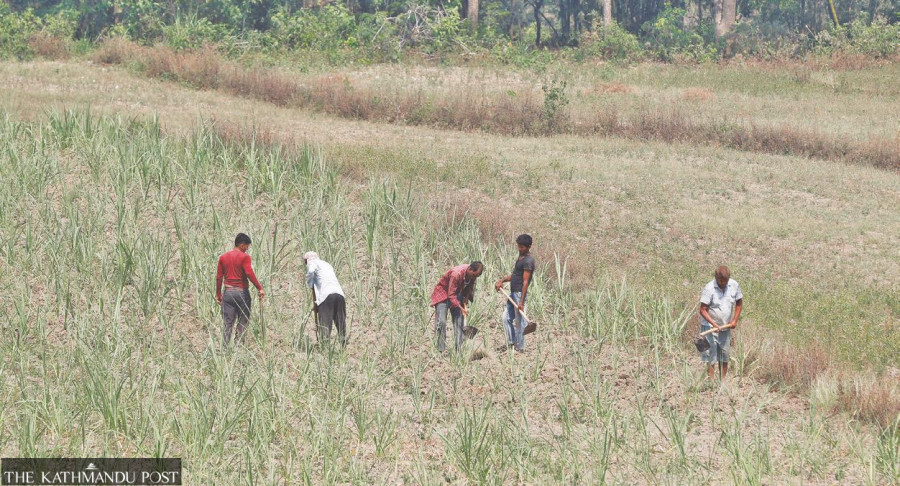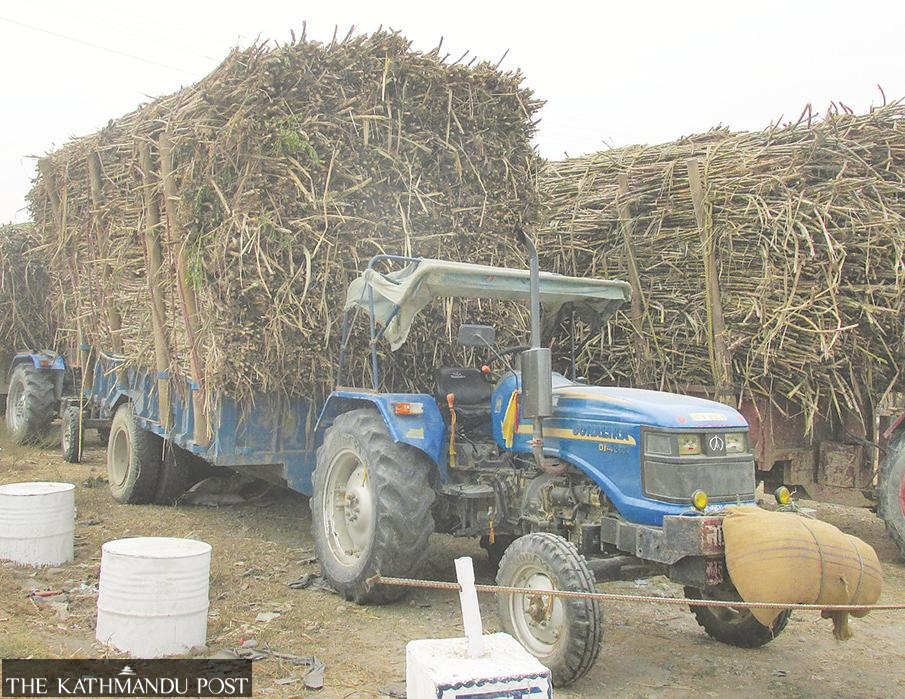Money
Delayed paperwork freezes Rs60 m of farmers’ subsidy
Sugarcane farmers can’t get their money because the mills have not submitted purchase details to the government.
Nabin Poudel
More than Rs60 million in subsidies intended for sugarcane farmers remains frozen as the sugar mills that bought their crops have not submitted purchase details to the District Treasury Controller Office.
The Ministry of Agriculture and Livestock Development has sent Rs60 million to the District Treasury Controller Office of West Nawalparasi for the fiscal year 2021-22 to be distributed among sugarcane farmers as a subsidy.
But the farmers have not received the money because of the negligence of the sugar factories; and with the fiscal year closing on July 16, the amount has been automatically frozen.
The government provides a subsidy of Rs70 per quintal to sugarcane farmers. Cane farmers say they are suffering due to utter carelessness of the sugar producers.
“Farmers have been deprived of the subsidy even in a district which is considered a sugarcane pocket area,” said Rakesh Harijan, a sugarcane farmer of Susta-5.
There are three sugar mills in the district.
“The sugar mills that are hesitant to make timely payments to the farmers have not submitted the details of the crops they have brought to the government. It’s sheer negligence,” he said.
“Political leaders and the government are silent about addressing the grievances of the farmers.”
The three mills in the district are Indira Sugar Mills, Lumbini Sugar Mills and Bagmati Khadsari Sugar Mills. Indira Sugar Mills remained shut this year.
Lumbini and Bagmati crushed sugarcane, but they have not completed the necessary paperwork.
Umesh Chandra Yadav, chairperson of Pratappur Rural Municipality and president of the Sugarcane Producers Farmers Committee of Lumbini province, said that farmers face a big problem because they could lose the money.
Amid concerns that middlemen may be skimming off the top, the government has been sending the subsidy directly in the farmers’ bank accounts from the last few years.
“The sugar producers had pledged that they would send the details by mid-June, but they failed to do so,” Yadav said. “We are discussing the issue. The farmers should get the subsidy at any cost.”
Shrawan Kumar Pokharel, chief district officer, said that after the farmers complained that they had not received the money, the sugar mills were instructed to send the details. “As soon as they send the details, we will start distributing the subsidy,” he added.
Besides the withheld subsidies, non-payment by sugar mills for sugarcane has been a longstanding bane for farmers.
Cane growers of West Nawalparasi have not been paid for the crops they sold to the sugar mills for the last four years.

Indira Sugar Mills, Pratappur has more than Rs10 million in arrears due to the farmers since 2017. Despite the assurance of payment, the mill closed two years ago.
Bagmati Sugar Mills has not made payment to the farmers for the last two years.
According to the Federation of Sugarcane Producers Association, sugarcane production has been declining continuously since 2012.
Output has plunged by around 50 percent as farmers faced heavy losses following delays in payment for their crops, and delays in the announcement of the minimum support price each year.
The farmers of Pratappur, Susta, Palhinandan and Sarawal areas in the southern part of the district have been cultivating sugarcane commercially.
The sugarcane acreage in the district has shrunk from 12,000 hectares five years ago to 5,000 hectares.
Tired of having to beg for their money from non-paying sugar mills every year, sugarcane farmers in Rautahat have begun switching to other crops, leading to a steep drop in output.
Sugarcane cultivation in the eastern Tarai districts has been declining for the last six years after many sugar mills stopped paying farmers on time.
Sugarcane was once a popular cash crop for many farmers in the southern Tarai, but now they have been planting other crops because they don’t get good returns, said farmers. Many farmers have to sell their harvest on credit.
Nepal’s annual sugar requirement totals 350,000 tonnes and sugar production has plunged by more than 50 percent, said sugarcane producers.
Suffering sugarcane farmers have come to Kathmandu twice during the winter season to appeal to the government to get the mills to pay them. They returned home each time after the government promised that the mills would be made to pay them.
But the mills still owe the farmers millions, they said.




 13.12°C Kathmandu
13.12°C Kathmandu















